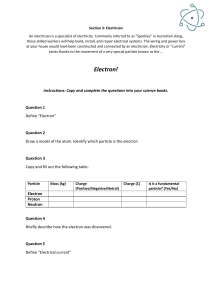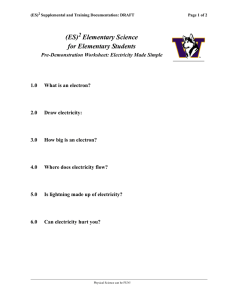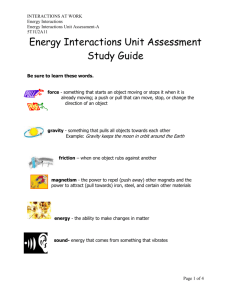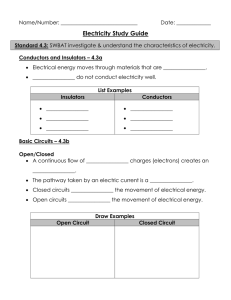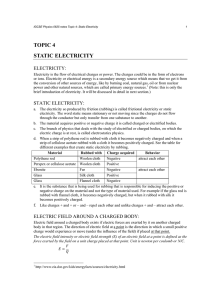Electricity Vocabulary
advertisement
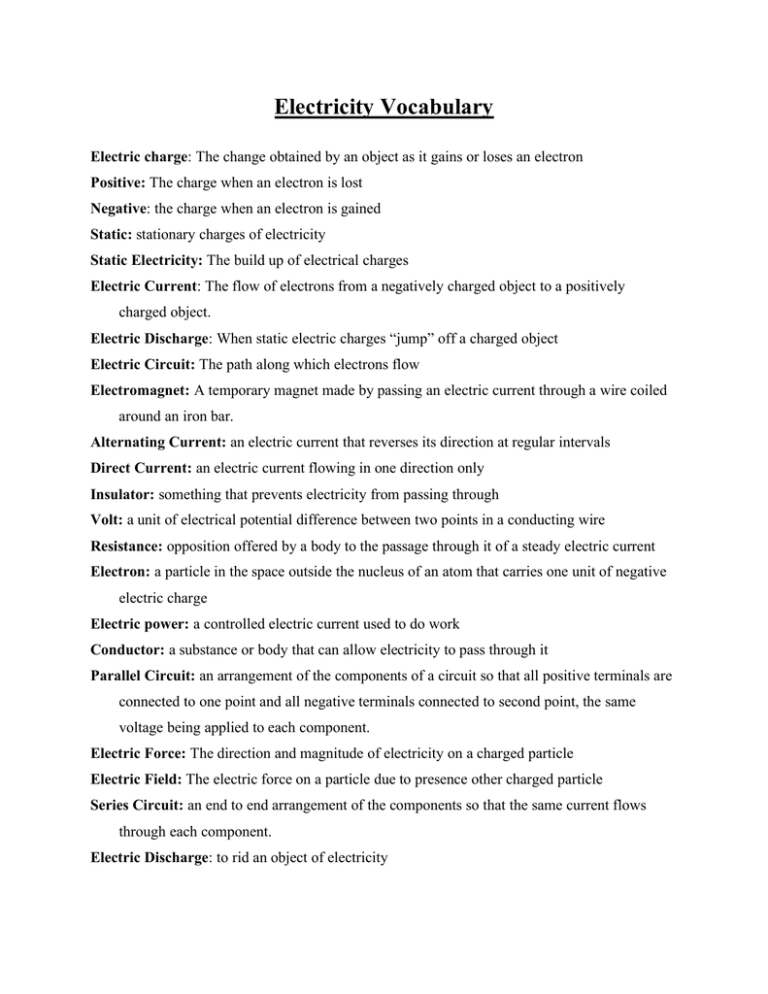
Electricity Vocabulary Electric charge: The change obtained by an object as it gains or loses an electron Positive: The charge when an electron is lost Negative: the charge when an electron is gained Static: stationary charges of electricity Static Electricity: The build up of electrical charges Electric Current: The flow of electrons from a negatively charged object to a positively charged object. Electric Discharge: When static electric charges “jump” off a charged object Electric Circuit: The path along which electrons flow Electromagnet: A temporary magnet made by passing an electric current through a wire coiled around an iron bar. Alternating Current: an electric current that reverses its direction at regular intervals Direct Current: an electric current flowing in one direction only Insulator: something that prevents electricity from passing through Volt: a unit of electrical potential difference between two points in a conducting wire Resistance: opposition offered by a body to the passage through it of a steady electric current Electron: a particle in the space outside the nucleus of an atom that carries one unit of negative electric charge Electric power: a controlled electric current used to do work Conductor: a substance or body that can allow electricity to pass through it Parallel Circuit: an arrangement of the components of a circuit so that all positive terminals are connected to one point and all negative terminals connected to second point, the same voltage being applied to each component. Electric Force: The direction and magnitude of electricity on a charged particle Electric Field: The electric force on a particle due to presence other charged particle Series Circuit: an end to end arrangement of the components so that the same current flows through each component. Electric Discharge: to rid an object of electricity
